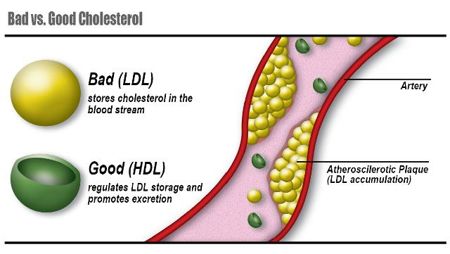As per Best Cardiologist in saket Delhi, HDL and LDL are acronyms that stand for high density lipoprotein and low density lipoprotein, respectively. Lipoproteins are composed of lipids (or fats) and proteins. These molecules bind together and travel throughout the body.
Because it transports to the liver and is excreted from the body, HDL cholesterol is known as “good” cholesterol. LDL cholesterol is the “bad” cholesterol because it circulates throughout the body and eventually accumulates in blood vessels. When cholesterol builds up in the blood vessels, it can cause heart disease. It causes vessel constriction, which can lead to cardiovascular problems such as high blood pressure.
According to Heart Failure Specialist Doctors in saket Delhi, a variety of factors influence cholesterol levels, some of which are under our control and others which are not. Some people are born with high cholesterol levels that remain high no matter what they do. However, lifestyle factors have a significant impact on cholesterol levels. Diet plays an important role because certain foods raise cholesterol levels. If you want to lower your cholesterol, you should avoid the following foods:
- Processed meats with a high fat content, such as deli meats and pepperoni
- Pizza and hamburgers are examples of greasy take-out food.
- Fried foods and buttery foods
Regular exercise also helps to keep cholesterol levels low because it promotes cardiovascular health. Walking, running, and cycling are excellent cardio workouts for controlling cholesterol levels. Smoking and poorly managed stress are two other lifestyle factors that may contribute to elevated cholesterol.
Best Cardiologist doctor in saket Delhi, says that when cholesterol levels become too high, complications such as chest pain, heart attack, and stroke can occur. Atherosclerosis occurs when cholesterol and other substances accumulate on the artery walls. This is a hazardous condition because it can reduce blood flow to the heart. This is because the surrounding arteries may be clogged or carrying plaque. Furthermore, if the plaque becomes dislodged, it can lead to a blood clot in the heart or brain.
When we talk about dangerously high cholesterol levels, we only mean LDL cholesterol (or “bad” cholesterol), because this is the type of cholesterol that accumulates in the body. To counteract this buildup, HDL cholesterol helps to transport excess cholesterol out of the body. So, if you have high HDL cholesterol levels, this is actually a good thing!
How to Check Cholesterol Levels
Heart Failure Specialist Doctors in saket , says that when you get older, measuring your cholesterol levels will most likely become part of your routine health care. A lipid panel is a blood test that includes cholesterol levels. This blood test examines the levels of LDL cholesterol, HDL cholesterol, total cholesterol, and triglycerides.
- A blood sample is taken and sent to a lab for testing for lipid panels. Your doctor will most likely request that you fast for 10-12 hours before your lipid panel, which means you should schedule it in the morning and avoid eating before arriving.
- Cholesterol total: Below 200 mg/dL is considered desirable; 200-239 mg/dL is considered borderline high; 240 mg/dL and above is considered high.
- LDL cholesterol: LDL readings range anywhere from “optimal, “near optimal,” “borderline high,” “high” and “very high”. The optimal LDL level varies according to your health history and age. If you have a history of heart disease, your LDL levels should be less than 70 mg/dL. Anywhere between 100 and 129 mg/dL is considered “near optimal” for anyone who does not have heart disease. The recommended LDL levels are detailed below.
- Men and women should have different HDL cholesterol levels. 60 mg/dL and higher is ideal for both men and women. For women, 50-59 mg/dL is considered normal, while less than 50 mg/dL is considered poor. For men, 40-59 mg/dL is considered normal, while less than 40 mg/dL is considered poor.
The only way to know for certain if you have high Cholesterol Levels is to have it checked. If you have high Cholesterol Levels, you can take medication and make lifestyle changes to help keep it under control. Some people may need to see a cardiologist or other medical professional about their high Cholesterol Levels to keep it from worsening into other serious health issues like heart disease, heart attack, or stroke. As high Cholesterol Levels for longer time without evaluated may lead to serious heart problems so it is always advisable to Meet the Best Cardiologist in Delhi NCR to treat the Cholesterol Levels and control other Heart Problems may arise due to Continuous Cholesterol Levels.
You should consult with the best cardiologist. Dr. Rajiv Agarwal, Max Hospital Saket Delhi’s Principal Director of Cardiology
www.rajivagarwal.in
